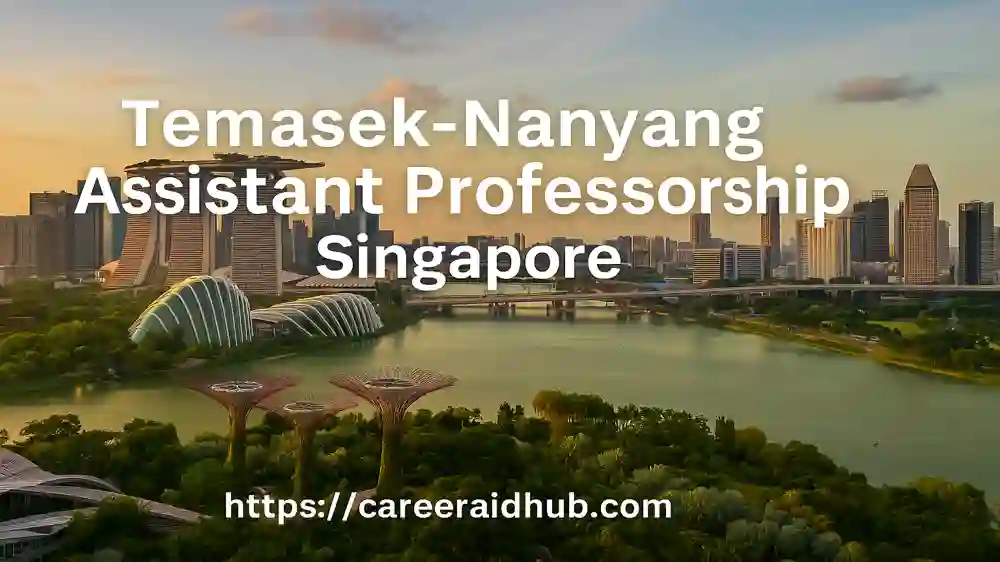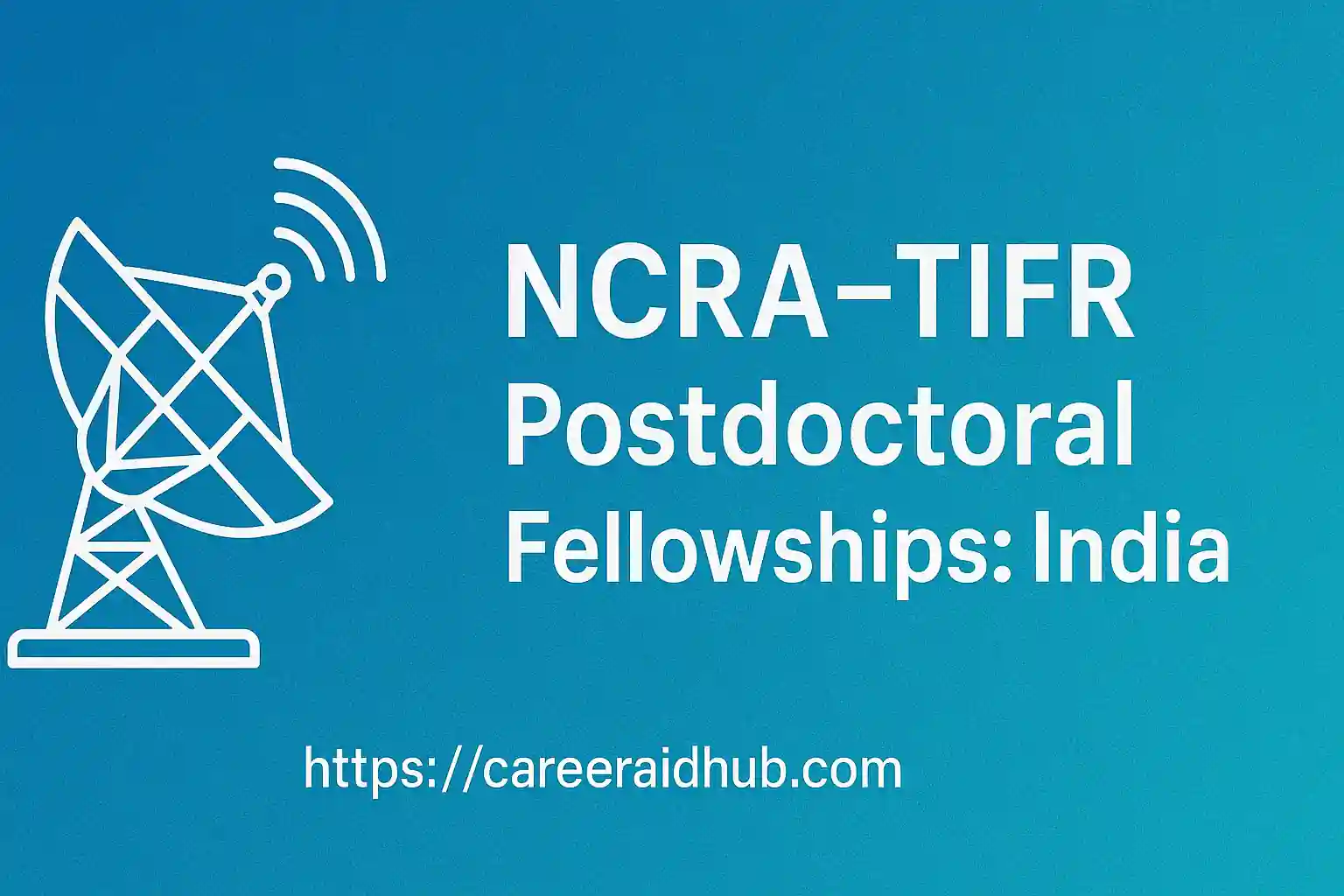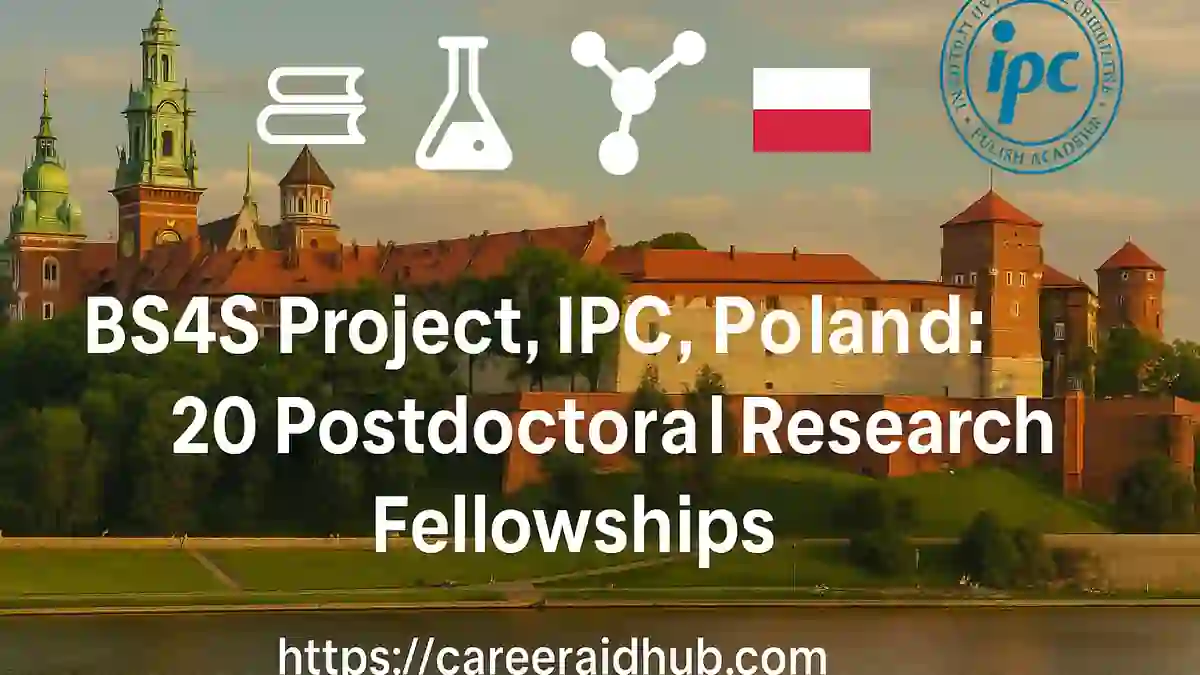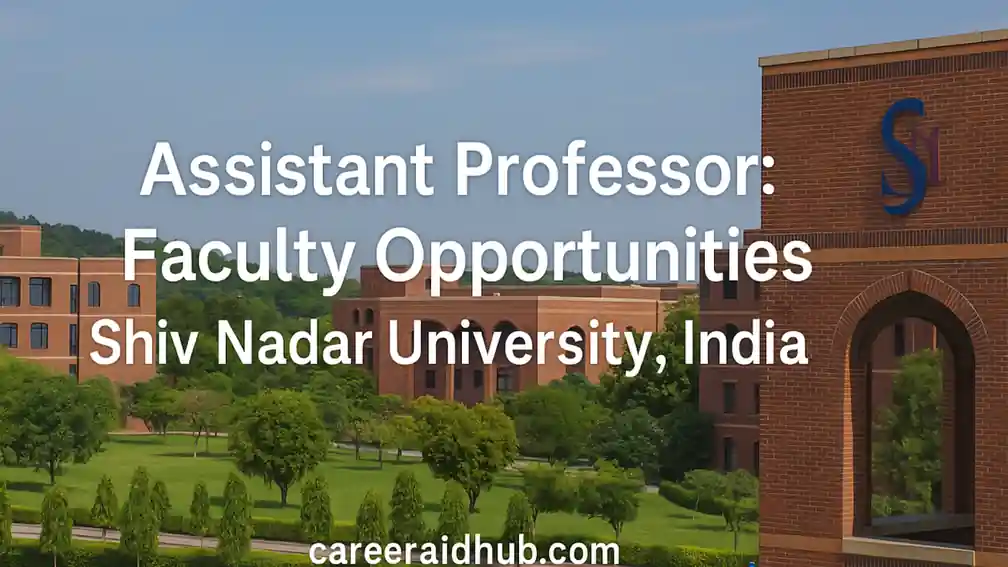Purpose and Vision
The Temasek-NAP was established through a partnership between Nanyang Technological University (NTU) and the Ministry of Defence (MINDEF), Singapore. Its purpose is clear: to attract, develop, and retain world-class early-career researchers in areas that have a transformative impact on Singapore’s defence and security ecosystem.
Unlike standard faculty positions, this award is structured as a career-building bridge between academia and national defence. Candidates are expected not only to publish influential scientific work but also to design projects that can be translated into real-world applications. This dual focus ensures that innovations in artificial intelligence, advanced materials, health, and cognition are quickly integrated into systems that strengthen resilience and national preparedness.
By design, the Temasek-NAP empowers researchers to become leaders in both academic communities and defence-focused research clusters.
The Temasek-Nanyang Assistant Professorship (Temasek-NAP) at Nanyang Technological University is an outstanding opportunity for early-career researchers. With strong funding, mentorship, and direct alignment to national defence priorities, this program enables scholars to advance high-impact interdisciplinary research while building sustainable academic careers.
Funding, Duration, and Institutional Support
style="text-align: justify;">One of the most distinctive features of the Temasek-NAP is its
generous financial package. Awardees may receive up to
S$500,000 in defence-related research funding. This amount is provided in addition to the
start-up grants normally available under NTU’s broader Nanyang Assistant Professorship (NAP) or Associate Professorship schemes.
This dual funding structure means that Temasek-NAP scholars can:
Establish laboratories equipped for complex experiments.
Recruit postdoctoral fellows, research associates, and PhD candidates.
Sustain long-term projects without facing early funding gaps.
Access cross-school facilities and shared platforms within NTU’s innovation ecosystem.
Equally important, recipients are placed on the tenure-track pathway, with the same rights to promotion, institutional mentorship, and evaluation as other NAP awardees. However, they enjoy the additional benefit of strategic backing from MINDEF, which amplifies the relevance and potential application of their research.
Eligibility and Selection Criteria
The eligibility process for Temasek-NAP is unique because it integrates both academic and defence priorities. To be considered, candidates must:
Apply under the Nanyang Assistant/Associate Professorship scheme, signaling their interest in the Temasek-NAP track.
Demonstrate research excellence, often evidenced by publications in top journals, impactful patents, or innovative proposals.
Provide a defence-oriented research plan, aligned with thematic clusters relevant to Singapore’s national security.
During joint evaluation
by NTU and MINDEF, applicants are assessed on:
Excellence and originality in research.
Interdisciplinary scope of the project.
Leadership potential, including the ability to guide teams and mentor students.
Commitment to long-term defence impact, particularly in technology translation and national security contributions.
Because the competition is intense, successful proposals typically combine academic novelty with a clear translational pathway.
Domains of Research Interest
Temasek-NAP is intentionally broad to capture emerging areas of importance. While defence applications remain central, the program covers a wide range of clusters:
Artificial & Augmented Intelligence
Focus on advanced algorithms, autonomous systems, cybersecurity, and AI-driven decision-making that enhances operational resilience.
Resilient Urbanisation & Natural Ecosystems
Work on smart infrastructure, environmental monitoring, and climate adaptation to protect both urban and natural ecosystems.
Brain and Learning
Projects in neuroscience, cognitive engineering, and human-machine interaction that improve training, performance, and adaptability.
Health & Society
Research on epidemiology, biosurveillance, public health readiness, and technologies that safeguard populations during crises.
Future of Industry
Advanced robotics, additive manufacturing, novel materials, and sensor technologies that strengthen industrial capacity and defence logistics.
Culture, Organisations & Society
Human factors, organisational resilience, and socio-technical systems that influence civil-military
cooperation and long-term stability.
These clusters emphasize Singapore’s recognition that modern defence is multidisciplinary. Science, technology, human behavior, and policy are inseparable when tackling complex challenges.
How to Apply
The application process involves several structured steps:
Submit to NTU’s NAP scheme, indicating explicit interest in Temasek-NAP.
Prepare a detailed defence research proposal, articulating originality, feasibility, and societal impact.
Undergo joint evaluation by NTU and MINDEF, where both academic merit and defence relevance are assessed.
If selected, receive a formal appointment and begin building your research team.
Applicants are strongly advised to:
Highlight collaboration opportunities with existing NTU research centres or defence agencies.
Provide measurable goals and clear milestones.
Demonstrate awareness of Singapore’s strategic research priorities.
What Temasek-NAP Offers
Being selected as a Temasek-NAP scholar provides tangible and intangible benefits:
Significant research funding that exceeds most early-career awards in Asia.
Institutional recognition, positioning recipients
as part of NTU’s elite young faculty.Collaboration opportunities with MINDEF, DSO National Laboratories, and industry partners.
International visibility, as the award signals both excellence and strategic relevance.
A career trajectory, not just a grant—enabling long-term professional development.
This comprehensive support system allows scholars to pursue ambitious, high-risk projects without fear of early resource shortages.
Strategic Advice for Applicants
To strengthen applications, candidates should:
Prioritize defence relevance by aligning proposals with Singapore’s security challenges.
Demonstrate feasibility with realistic timelines and resource allocation.
Show interdisciplinary vision, especially linking AI, health, environment, and materials science.
Emphasize translation potential, outlining how innovations could be scaled or deployed.
Engage stakeholders early, such as NTU labs or defence partners, to refine scope.
Maintain academic rigor, ensuring the research design is methodologically sound.
Examples of Defence-Oriented Research
Several types of projects illustrate the Temasek-NAP profile:
Autonomous UAV navigation systems using reinforcement learning in urban environments.
Neuroadaptive soldier interfaces that map cognitive load to sensory feedback in real time.
Smart material sensor networks for monitoring structural integrity of critical defence infrastructure.
AI-driven biosurveillance platforms integrating genomic and environmental data for early outbreak detection.
Each example underscores how breakthrough research can transition from theory to operational defence systems.
Program Duration and Career Path
NTU’s tenure-track framework, typically structured around six years, ties directly to the Temasek-NAP. Scholars must publish, secure additional grants, mentor students, and achieve defined milestones.
By fulfilling these expectations, recipients can advance to permanent faculty positions or assume leadership in defence research collaborations. The program is not just financial—it is a career development trajectory with national importance.
Challenges and Considerations
While the benefits are substantial, candidates should be prepared for challenges:
Balancing fundamental research with applied defence goals.
Meeting rigorous expectations from both academic and defence evaluators.
Ensuring scalability and funding continuity beyond the initial award.
Navigating ethical, security, and classification constraints in sensitive projects.
Integrating across disciplines, which requires communication and adaptability.
Addressing these considerations upfront strengthens both the proposal and long-term project success.
Conclusion and Call to Action
The Temasek-Nanyang Assistant Professorship represents a unique pathway for early-career scholars to combine academic rigor with defence relevance. With significant funding, institutional mentorship, and a clear tenure trajectory, this award equips researchers to pursue innovative projects while making meaningful contributions to national security.
If you are a researcher eager to advance cutting-edge work that blends scholarly impact with strategic application, consider applying to the Temasek-NAP. Review the official guidelines, prepare a bold proposal, and position yourself at the forefront of research with real-world importance.
Quick Reference Table
| Feature | Details |
|---|
| Program Name | Temasek-Nanyang Assistant Professorship (Temasek-NAP) |
| Host Country | Singapore |
| Funded By | NTU and Ministry of Defence (MINDEF), Singapore |
| Duration | Tenure-track (typically 6 years) |
| Study Mode | Full-time, research and teaching |
| Eligibility | Early-career researchers with PhD; strong academic record |
| Financial Support | Up to S$500,000 plus NTU start-up grants |
| Fields of Study | AI, engineering, health, neuroscience, urban systems, defence-oriented social sciences |
| Deadline | Current cycle open; next cycle expected mid-2026 (exact date to be announced) |
| Official Website | NTU Temasek-NAP |
Frequently Asked Questions
What is the Temasek-Nanyang Assistant Professorship at NTU?It is a tenure-track program offering funding and support for early-career researchers to conduct defence-related, high-impact, interdisciplinary research at NTU Singapore.
Who is eligible for the Temasek-Nanyang Assistant Professorship?Applicants must hold a PhD, show strong research potential, and propose innovative projects aligned with defence, science, and technology clusters.
How much funding does the Temasek-NAP provide?Awardees can receive up to S$500,000 in defence research funding, along with NTU’s standard start-up research grants for faculty members.
What research areas are supported under Temasek-NAP?The program supports artificial intelligence, advanced materials, urban resilience, neuroscience, health technologies, robotics, and defence-related social sciences.
How long is the Temasek-NAP appointment?The professorship follows NTU’s tenure-track model, typically six years, with performance reviews determining long-term faculty placement.
How do I apply for the Temasek-Nanyang Assistant Professorship?Applicants must apply through NTU’s NAP scheme, indicate interest in Temasek-NAP, and submit a defence-focused research proposal for joint review.
Does Temasek-NAP require defence research experience?No. Applicants do not need prior defence sector experience, but they must show research excellence and propose projects with defence relevance.
What benefits come with the Temasek-NAP award?Benefits include competitive funding, mentoring, tenure-track support, access to NTU facilities, and collaboration with defence agencies and industry partners.
Can international researchers apply for Temasek-NAP?Yes. The program welcomes qualified researchers worldwide, provided their projects align with NTU’s academic standards and Singapore’s defence priorities.
When is the next application cycle for Temasek-NAP?Applications are currently open, with the next cycle expected to be announced in mid-2026. Exact dates will be updated soon.










